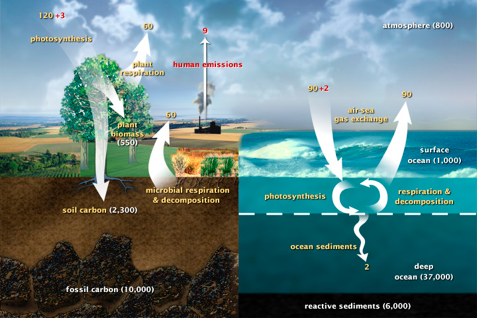
Students who are directly involved in scientific activities develop a deeper understanding and appreciation of both scientific knowledge and the scientific process. This understanding is critically important in scientific areas like climate change that are the focus of global public and political debate. Toward this end, we used a publicly available atmospheric carbon dioxide modeling activity in a non-major biology course to foster a deeper understanding and appreciation of climate change science. This activity steps students through the development of a basic model of carbon flow between the land, the atmosphere, and the ocean. Students manipulate components of the model to optimize the model based on known data. The model is then used to make predictions for future atmospheric carbon dioxide under scenarios that the students generate and test. For the initial implementation of this lab, pre/post assessment questions evaluated the student's confidence in science and general science knowledge, as well as gauged the usefulness of this class activity. Assessment data and student feedback indicated that the students enjoyed this activity and learned about climate change dynamics and also about the climate change modeling process.